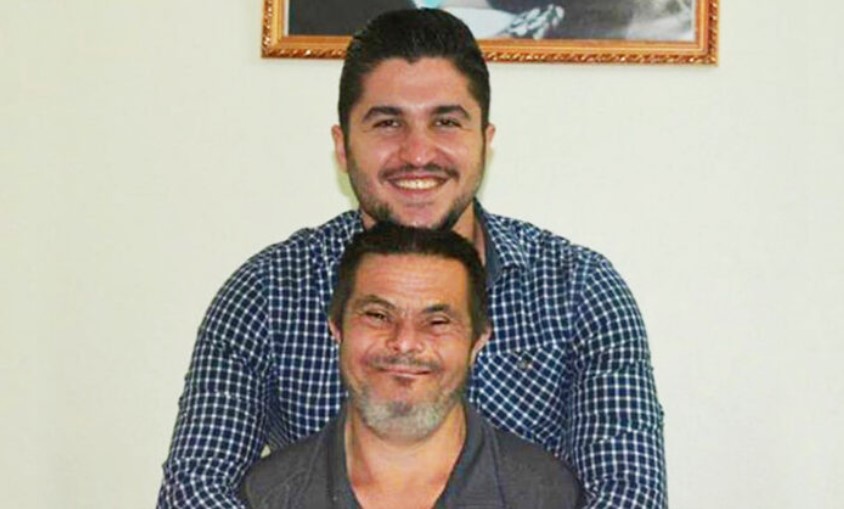Narcissism is a complex personality disorder that is characterized by an exaggerated sense of self-importance, intense need for admiration, and a lack of empathy. Narcissists have an inflated sense of their own worth and often believe that they are special, unique, and superior to others. They need constant attention and validation from those around them, which may manifest itself in behaviors such as exaggerating achievements, talents, and accomplishments or fishing for compliments or praise.
Narcissists typically lack empathy and find it difficult to understand or care about other people’s emotions or feelings. They may disregard or dismiss others’ needs, wants, or opinions, seeing them only as a means to their own ends. Envy towards those perceived as more successful can also be common among narcissists.
Narcissism may also include a sense of entitlement: believing that one is deserving of special treatment or privileges simply due to who they are. This arrogance and haughtiness may result in condescending or dismissive behavior toward others.
Narcissists often struggle to take responsibility for their actions or mistakes instead of shifting blame onto others. This inability to accept responsibility can lead to strained relationships and a general disregard for the feelings and needs of those around them.
It is important to remember that not everyone with narcissistic traits has NPD – only a trained mental health professional can make this diagnosis – and that everyone has some degree of self-interest and desire for approval from time to time. However, when these traits become extreme and begin to interfere with daily life, it may be indicative of NPD which requires proper care from professionals in the form of psychotherapy, medication management, and support teams.
Here are 7 signs to spot a narcissist
Grandiose sense of self-importance
Narcissists often exhibit an inflated sense of self-worth, seeing themselves as superior to others. They may believe they are the smartest, most talented, or most attractive person in the room. Their egos are often fragile and require constant validation, leading them to exaggerate their achievements, talents, and accomplishments. Narcissists may go to great lengths to showcase their perceived superiority, whether it’s through boasting about their accomplishments, displaying expensive possessions, or monopolizing conversations.
However, underneath this façade lies a deep sense of insecurity and low self-esteem, as their sense of self-worth is based on external validation rather than their internal sense of self. This anxiety and insecurity can manifest in unpredictable behavior, making it challenging to develop and maintain healthy relationships with narcissists.
Craving for admiration and attention
Narcissists have an insatiable need for attention and admiration from others. They crave constant validation, reassurance, and recognition, and will go to great lengths to ensure they remain the center of attention. Narcissists often fish for compliments, brag about their achievements, and exaggerate their successes in order to receive praise and admiration from others. They may also seek out relationships or situations where they feel they can be the most important person in the room and may get jealous or upset if they feel overlooked or underappreciated.
This constant need for attention and validation can be exhausting for those around them and can lead to the breakdown of relationships and friendships. Additionally, since narcissists often lack empathy, they may not even realize or appreciate the impact their behavior has on others, making it difficult to break the cycle of constantly seeking admiration and attention.
Lack of empathy
One of the most defining characteristics of Narcissistic Personality Disorder is a lack of empathy. Narcissists have difficulty understanding or caring about the emotions or feelings of others. They may disregard or dismiss the feelings of others, seeing them as unimportant. Narcissists may be so consumed with their own wants and need that they have little room or interest in the emotional well-being of others.
They may feel that their own needs and desires are the most important thing and that other people should be happy just to be in their company. This lack of empathy can be incredibly damaging to relationships, as it can lead to a disconnection from the experiences of others and a lack of concern when others are in emotional distress. Without empathy or understanding, it’s difficult for narcissists to form healthy, meaningful relationships with others.
Envy and jealousy
Narcissists often struggle with feelings of envy and jealousy toward others who they perceive as more successful, attractive, or accomplished than themselves. These feelings may emerge when narcissists feel that their own sense of self-worth is threatened by others’ successes. In response, they may attempt to undermine or discredit those whom they see as competition, in order to maintain their own sense of superiority.
Narcissists can also become possessive of those they see as “their” friends or romantic partners, becoming angry or hostile when they suspect others are vying for their attention. This possessiveness, alongside their envy and jealousy, can make it hard for narcissists to form healthy relationships with those around them. It’s difficult for them to appreciate the successes and achievements of others, as these accomplishments may be seen as a threat to their own sense of worth.
Sense of entitlement
One of the key traits of Narcissistic Personality Disorder is a belief in one’s own entitlement. Narcissists may feel that they are entitled to special treatment and privileges, seeing themselves as inherently more deserving than others. They may expect others to cater to their needs and desires without regard for anyone else. Narcissists may become irritable, angry, or even aggressive when their demands are not met, feeling that they are being unfairly treated by those around them.
This sense of entitlement can make it difficult for narcissists to understand that the needs and desires of others are just as valid and legitimate as their own. Though many of us feel entitled occasionally or in certain situations, for those with NPD, this sense of entitlement is pervasive and damaging, leading to feelings of resentment toward others and undermining otherwise healthy relationships.
Arrogance and haughty behavior
Narcissists often exhibit an air of superiority and may act in a condescending or dismissive manner toward others. They may see themselves as the only person in a room worth paying attention to and may become irritated or angry when others don’t appreciate or recognize their supposed importance. Narcissists may be particularly dismissive toward those they see as “below” them, whether because of social status, education, or other perceived factors.
This dismissive behavior can be particularly damaging to individuals who are already marginalized or struggling, as it reinforces existing social hierarchies and can leave those targeted by narcissistic behavior feeling ignored, undervalued, and unsupported. In the workplace, the effects of narcissistic behavior can be particularly poisonous, as it can create a culture of fear and competition, in which people are discouraged from working together or collaborating.
Lack of accountability
Narcissists often struggle to take responsibility for their actions or mistakes, instead shifting blame onto others and refusing to acknowledge their role in a situation. They may become defensive or aggressive when they feel that they are being criticized or called out for their behavior, feeling that their sense of self-worth is under threat. Narcissists may also deflect blame onto those around them, seeing others as a means to deflect blame and protect their own fragile egos.
This difficulty in taking responsibility for one’s actions can be incredibly damaging both to the relationships that narcissists have with others and to their own mental health. Without the ability to reflect on and learn from their mistakes, narcissists may continue to behave poorly or cause harm to those around them. It’s important for individuals with NPD to receive compassionate, non-judgmental care from trained mental health professionals who can help them learn how to take responsibility and be accountable for their actions.








